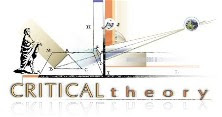
There is a longitudinal study which started back before 1920 which found at all ages women who grew up without a father had significantly more relationship and emotional problems than women who had a father. Such girls miss out on the primary and prototype NON-sexual relationship with a man. All the lies and hysteria about fathers "abusing" daughters to the contrary, most men consider their own daughters the ultimate of "off-limits" and also try to protect them from destructive relationships with other men ("NO! You are not going to marry the bongo player, nor are you going out of the house with your butt-crack showing!!")
Without this example of how to relate to men non-sexually, and compounded by the fact that she sees her primary role model - dear old "mom" - relating to a series of men purely and only in a sexual manner, these girls simply do not develop ordinary social skills and clobber every male "nail" with their hammer of seductiveness. Their approach to men is fundamentally dishonest and manipulative, and they draw in predatory men who are equally dishonest and manipulative, then turn around and blast ALL men for their poor choices.
As the years go by, the cumulative failures of their dishonest strategies lead them to become bitter and hate-filled toward the entire male sex. No self-respecting man would put up with their gauntlets of emotional barbed-wire in order to get close to them, so they end up locking themselves into prisons of their own creation.
Then, they get jobs as "wimmins's studdees" professors.
The problem I see is that thousands of years of oral tradition of teaching kids how to live within a family and get along, have been virtually completely destroyed in a couple of generations. As we all well know, it is easier for a camel to pass through the eye of a needle than to get a woman to acknowledge the responsibility of her own actions and choices in the results she gets - so most of these women are going to go to their graves without ever wising up.
Divorce seems to function like an infectious disease - once the parents get it, they pass it along to generation after generation of children. The divorce rate among children of divorce is much higher than the average for the population, which points to the obvious fact that for children of intact families it is much lower.
Without this example of how to relate to men non-sexually, and compounded by the fact that she sees her primary role model - dear old "mom" - relating to a series of men purely and only in a sexual manner, these girls simply do not develop ordinary social skills and clobber every male "nail" with their hammer of seductiveness. Their approach to men is fundamentally dishonest and manipulative, and they draw in predatory men who are equally dishonest and manipulative, then turn around and blast ALL men for their poor choices.
As the years go by, the cumulative failures of their dishonest strategies lead them to become bitter and hate-filled toward the entire male sex. No self-respecting man would put up with their gauntlets of emotional barbed-wire in order to get close to them, so they end up locking themselves into prisons of their own creation.
Then, they get jobs as "wimmins's studdees" professors.
The problem I see is that thousands of years of oral tradition of teaching kids how to live within a family and get along, have been virtually completely destroyed in a couple of generations. As we all well know, it is easier for a camel to pass through the eye of a needle than to get a woman to acknowledge the responsibility of her own actions and choices in the results she gets - so most of these women are going to go to their graves without ever wising up.
Divorce seems to function like an infectious disease - once the parents get it, they pass it along to generation after generation of children. The divorce rate among children of divorce is much higher than the average for the population, which points to the obvious fact that for children of intact families it is much lower.
Here are some of the observed effects of removing a father to the position of a visitor in a child`s life.
"Based on our clinical experience with a number of latency aged and adolescent girls whose parents divorced during their oedipal years, we postulate that particular coping patterns emerge in response to the absence of the father, which may complicate the consolidation of positive feminine identification in many female children, and is observable during the latency years. We illustrate both the existence of these phenomena and implications for treatment:
1. intensified separation anxiety
2. denial and avoidance of feelings associated with loss of father
3. identification with the lost object
4. object hunger for males."
"In an earlier study by Kalter and Rembar at [Children's Psychiatric Hospital, University of Michigan], a sample of 144 child and adolesce atients, whose parents had divorced, presented [for evaluation and treatment] with three most commonly occurring problems:
63% Subjective psychological problem (defined as anxiety, sadness, pronounced moodiness, phobias, and depression)
56% Poor grades or grades substantially below ability and/or recent past performance
43% Aggression toward parents Important features of the subgroup of 32 latency aged girls were in the same order:
69% indicating subjective psychological distress 47% academic problems 41% aggression toward pa ts.
Clinical Observations on Interferences of Early Father Absence in the Achievement of Femininity by R. Lohr, C. g, A. Mendell and B. Riemer, Clinical Social Work Journal, V. 17, #4, Winter, 1989
Excerpt from Baskerville, S. Taken into Custody: The War Against Fatherhood, Marriage, and the Family. Nashville: Cumberland House Publishing, 2007
“Virtually every major social pathology of our time: violent crime, drug and alcohol abuse, truancy and scholastic failure, unwed pregnancy, suicide and other psychological disorders – all these correlate more strongly to fatherlessness than to any other single factor.[1] According to the National Fatherhood Initiative, “Children who live absent their biological fathers are, on average, at least two to three times more likely to be poor, to use drugs, to experience educational, health, emotional, and behavioral problems, to be victims of child abuse, and to engage in criminal behavior than those who live with their married, biological (or adoptive) parents.”[2] The overwhelming majority of prisoners, juvenile detention inmates, high school dropouts, pregnant teenagers, adolescent murderers, and rapists all come from fatherless homes. Children from affluent but separated families are much more likely to get into trouble than children from poor but intact ones, and white children from separated families are at higher risk than black children in intact families. The connection between single parent households and crime erases the relationship between race and crime and between low income and crime[3].”
[1] Attempts to attribute these behaviors to poverty or racial discrimination have been refuted by studies that control for these variables. See Urie Bronfenbrenner, “Discovering What Families Do,” in David Blankenhorn, et al. (eds.), Rebuilding the Nest: A New Commitment to the American Family (Milwaukee: Family Service America, 1990), p. 34; Ronald Angel and Jacqueline Angel, Painful Inheritance: Health and the New Generation of Fatherless Children (Madison: University of Wisconsin Press, 1993), p. 188. Even left-wing scholars concur: Norman Dennis and George Erdos, Families Without Fatherhood (London: Civitas, 2000).
[2] Horn and Sylvester, Father Facts, p. 15.
[3] Elaine Ciulla Kamarck and William Galston, Putting Children First (Washington: Progressive Policy Institute, 1990), p. 14.
-----------------------------------------------------------------------
Wisdom of Zenpriest Index Next


















































